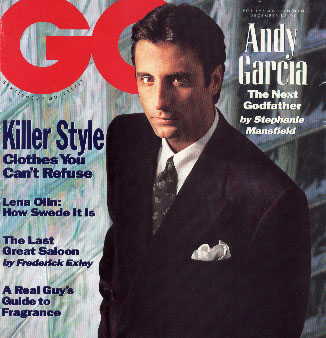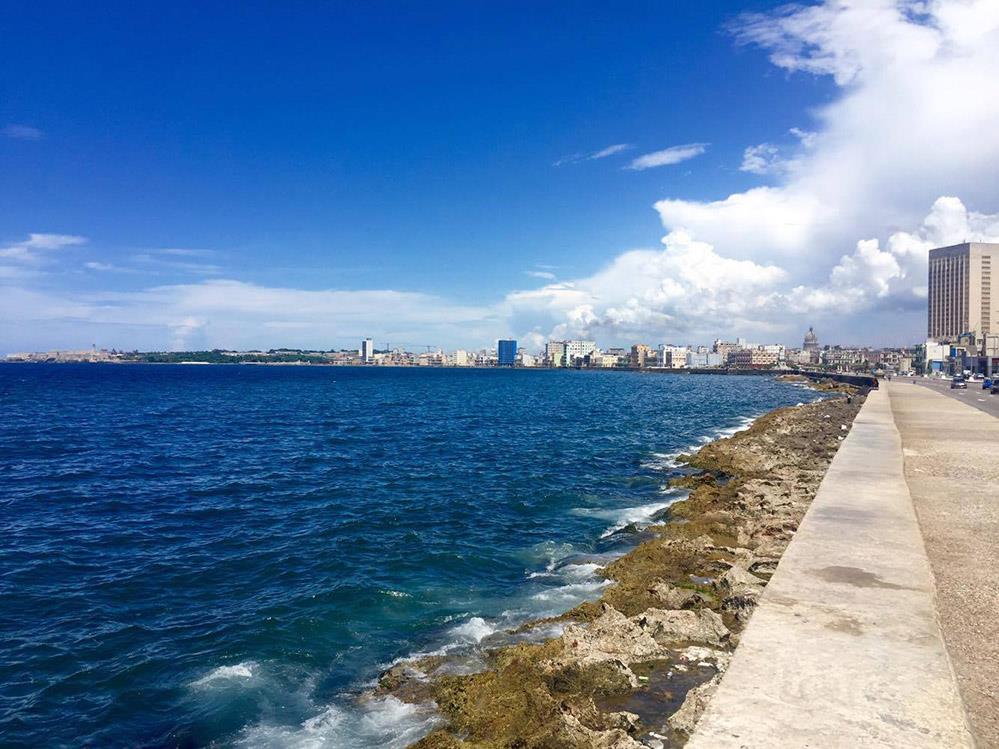 One of Hollywood’s most private and guarded leading men, Andy Garcia has created a few iconic characters while at the same time staying true to his acting roots and personal projects.
One of Hollywood’s most private and guarded leading men, Andy Garcia has created a few iconic characters while at the same time staying true to his acting roots and personal projects.
Garcia was born Andrés Arturo García Menéndez on April 12, 1956, in Havana, Cuba, to Amelie Menéndez, a teacher of English, and René García Núñez, an attorney and avocado farmer. Garcia’s family was relatively affluent.
However, when he was two years old, Fidel Castro came to power, and the family fled to Miami Beach. Forced to work menial jobs for a while, the family started a fragrance company that was eventually worth more than a million dollars. He attended Natilus Junior High School and later at Miami Beach Senior High School. Andy was a popular student in school, a good basketball player and good-looking. He dreamed of playing professional baseball. In his senior year, though, he contracted mononucleosis and hepatitis, and unable to play sports, he turned his attention to acting.
Height 5′ 10″ (1.78 m)
He studied acting with Jay W. Jensen. Jensen was a South Florida legend, counting among his numerous students, Brett Ratner, Roy Firestone, Mickey Rourke, and Luther Campbell. Following his positive high school experiences in acting, he continued his drama studies at Florida International University.
Soon, he was headed out to Hollywood. His first break came as a gang member on the very first episode of the popular TV series Hill Street Blues (1981). His role as a cocaine kingpin in 8 Million Ways to Die (1986) put him on the radar of Brian De Palma, who was casting for his gangster classic The Untouchables (1987). At first, he envisioned Garcia as Al Capone’s sadistic henchman Frank Nitti, but fearing typecasting as a gangster, Garcia campaigned for the role of “George Stone”, the Italian cop who gets accepted into Eliot Ness’ famous band of lawmen. Garcia’s next notable role came in Black Rain (1989) by acclaimed director Ridley Scott, as the partner of police detective Michael Douglas. He then co-starred with Richard Gere in Internal Affairs (1990), directed by Mike Figgis.
In 1989, Francis Ford Coppola was casting for the highly anticipated third installment of his “Godfather” films.
The Godfather: Part III (1990) included one of the most sought-after roles in decades, the hot-headed son of “Sonny Corleone” and mob protégé of “Michael Corleone”, “Vincent Mancini”. A plum role for any young rising star, the role was campaigned for by a host of actors. Val Kilmer, Alec Baldwin, Vincent Spano, Charlie Sheen, and even Robert De Niro (who wanted the role changed to accommodate his age) were all beaten out by the up-and-coming Garcia. His performance was Oscar-nominated as Best Supporting Actor, and secured him international stardom and a place in cinematic history. Now a leading man, he starred in such films as Jennifer 8 (1992) and Hero (1992). He won raves for his role as the husband of Meg Ryan in When a Man Loves a Woman (1994) and gave another charismatic gangster turn in Things to Do in Denver When You’re Dead (1995).
He then returned in Night Falls on Manhattan (1996), directed by Sidney Lumet, as well as portraying legendary mobster Lucky Luciano in Hoodlum (1997). In perhaps his most mainstream role, he portrayed a cop in the action film Desperate Measures (1998). Garcia then starred in a few lower-profile projects that didn’t do much for his career, but things turned around in 2001, with the first of many projects being his role as a cold casino owner in Ocean’s Eleven (2001), directed by Steven Soderbergh.
Seeing his removal from Cuba as involuntary, Garcia is proud of his heritage which influences his life and work.
One such case is his portrayal of renowned Cuban trumpet player Arturo Sandoval in For Love or Country: The Arturo Sandoval Story (2000). He is an extremely private man, and strong believer in old-fashioned chivalry. Married to his wife, Maria Victoria, since 1982, the couple has three daughters.
One of the most talented leading men around, Garcia has had a unique career of staying true to his own ideals and thoughts on acting. While some would have used some of the momentum he has acquired at different points in his career to get rich off lightweight projects, Garcia has stayed true to stories and films that aspire to something more. But with a presence and style that never seem old, a respect from directors and film buffs, alike, Andy Garcia will be remembered for a long time in film history.
Agencies/IMDb/Brian Stewart/Chase Rosenberg/InternetPhotos/YouTube/Arnoldo Varona/TheCubanHistory.com
THE CUBAN HISTORY, HOLLYWOOD.














